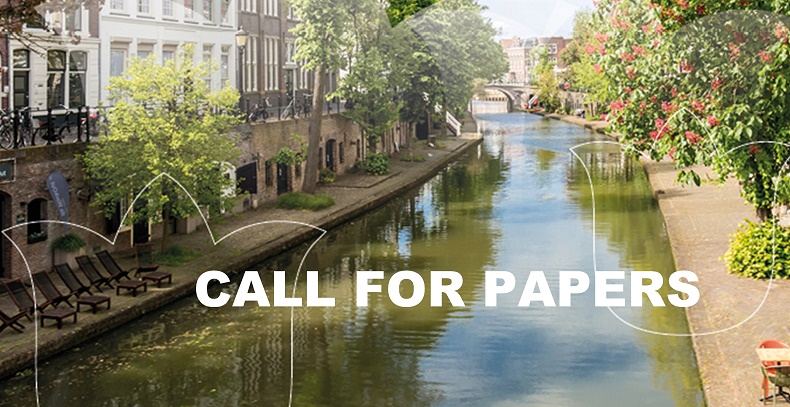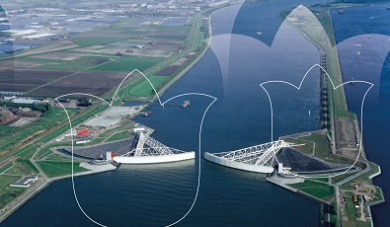

This Call for Papers is announced both for peer review papers and
non-peer review papers.
The deadline for submission of abstract was 12 January 2021.
The theme for FIG e-Working Week 2021 will be the same as for the Working Week 2020:
with an addition to reflect on working with and adapting to new realities, in this case the impact of COVID-19 on our profession. During FIG e-Working Week 2021, besides the subthemes Smart Surveyors, Integrated Land and Water Management and FIG, Surveyors and the SDGs, we also want to focus on the surveyors and the challenges they have in a unstable, uncertain and unpredictable world and with what technology, methods and procedures they face these new developments. How do surveyors adapt to these unexpected circumstances and what have we learned so far from these challenges?
The theme 'Smart Surveyor for Land and Water Management - challenges in a new reality’ is relevant both for the international community as well as for our local organisers from the Netherlands. Mapping and surveying are basic activities to support the management of land and water. Having almost 200 years of experience with mapping and more than 100 years of land consolidation, the Netherlands brings inspiring knowledge and experience to the FIG e-Working Week 2021. Apart from being known for its tulips, wind mills and clogs, with its almost 42,000 Square km the Netherlands is one of the most surveyed area in the world. Every square meter is mapped, registered and documented and it has to be, being densely populated, with more than 55% of the total country below sea level and being the second exporter of agricultural goods in the world.
The overall theme Smart Surveyors for Land and Water Management – challenges in a new reality, is built up by the following sub-themes:
Smart SurveyorsDuring the FIG e-Working Week 2021, we will put the ‘Smart Surveyor’ at the centre stage. We will do so by preparing current and future generations of professionals, by sharing knowledge about approaches that work, by bridging the technological and the societal perspective, by educating our workforce, and by strengthening and developing our profession. Rapid urban growth, smart energy, cleaner mobility, and ‘land rights for all’ are some of the challenges demanding innovative surveying approaches and technologies. Sensing technologies, spatial data processing technologies and related approaches are already available. Use and improve them to become future proof, Smart Surveyors! |
 |
 |
Integrated Land and Water managementWithout integrated land and water management, the Netherlands as well as other coastal countries cannot sustain its agricultural and urban development. Climate change, though, increases the risks of sea and riverine floods while extended drought periods complicates this management task. Unorthodox measures are called for. Get familiar with these measures and discuss them from your critical surveyor perspective. |
FIG, Surveyors and the Sustainable Development GoalsThe countdown has begun, less than a decade to go to accomplish the Sustainable Development Goals. The SDGs are the blueprint to achieve a better and more sustainable future for all and surveying professionals have a key role to play. How did we, as surveyors, contribute to ending poverty, improve health and education, reduce inequality, and spur economic growth – all while tackling climate change and working to preserve our oceans and forests? In addition, what will be our role for the coming ten years? |
 |
 |
Challenges in a new realityWhat impact is the coronavirus pandemic having on the geospatial industry worldwide? The current situation is unique. There are no textbooks from which we can learn how to master such a crisis. The impact varies from country to country and from organisation to organisation. Such a change in reality brings challenges and opportunities. During FIG e-Working Week we want to focus on the surveyor and the challenges they have in an unstable, uncertain, unpredictable world and with what technology, methods and procedures they face these new developments. How do surveyors adapt to these unexpected circumstances and what have we learned so far from these challenges? |
See also Specification of Topics and Themes
You are encouraged to submit an abstract. The procedure will be different for this e-Working Week. Abstracts will be reviewed and if you abstract is approved, you will be asked to submit a full paper and a video presentation. The video presentation must not be longer than 4 minutes. All abstracts, papers, presentation handouts and videos will be included in the final proceedings. Papers and video presentations will be included in sessions as background material and will be available before the e-Working Week starts. A selection of authors from the open call for papers will be invited as presenter / panelist directly in sessions.
The deadlines are as follows:
We encourage you to consider the overall theme of FIG e-Working Week
2021: Smart Surveyors for Land and Water Management - Challenges in a
New Reality, and the four main topics when you submit your abstract.
Many topics are multi-disciplinary and are relevant in both developing
and developed world contexts. We encourage submissions of
cross-disciplinary nature cutting across many disciplines/subject-areas.
1 SUBMIT AN ABSTRACTIf you would like to have your paper included in the proceedings, start by submitting an abstract. You will need the following: title, abstract, keywords and biographical information. |
2 GET ACCEPTEDAfter we receive your abstract, it moves to the evaluation step. We welcome the submission of abstracts until 4 January. Abstracts will be reviewed before mid January. |
3 REGISTEROnce your abstract is accepted, you must register to ensure that your paper will be included in the proceedings. |
4 SUBMIT FULL PAPER & VIDEO PRESENTATIONOnce your abstract is accepted, you must submit your max. 15 pages paper to fig@fig.net |
5 PUBLICATION OF PROGRAMMEYour paper and video presentation will be included in a session as background material and will be available before the e-Working Week starts. |
6 ATTEND THE e-WORKING WEEKEnjoy the e-Working Week and connect with fellow participants. A selection of authors from the open call will be invited as presenter/panelist in sessions. |
Proposals for papers non-peer review and peer review are requested in all topics of interest of the following:
Professional Standards and Practice – FIG Commission 1
Professional Education – FIG Commission 2
Spatial Information Management – FIG Commission 3
Hydrography – FIG Commission 4
Positioning and Measurement – FIG Commission 5
Engineering Surveys – FIG Commission 6
Cadastre and Land Management – FIG Commission 7
Spatial Planning and Development – FIG Commission 8
Valuation and the Management of Real Estate – FIG Commission 9
Construction Economics and Management – FIG Commission 10
The Permanent Institution of History for Surveying and Measurement invites contributions on the history of surveying and measurement, and the techniques and instrumentation involved.
Papers are also invited on the areas covered by FIG Networks:
FIG Young Surveyors Network would like to see contributions from young surveyors in all ten Commissions.
FIG Standards Network invites contributions on standards related to the surveying and geospatial profession.
Regional Capacity Development Networks
with the following topics:
The Scientific Committee of the Technical Programme:
|
The Scientific Committee of the Peer Review Papers:Chief Editor:
Members:
|
Any inquiries on call for Papers, abstracts, peer review process, technical programme or video presentation, please contact the FIG Office (Email: fig@fig.net, tel +45 9391 0813).